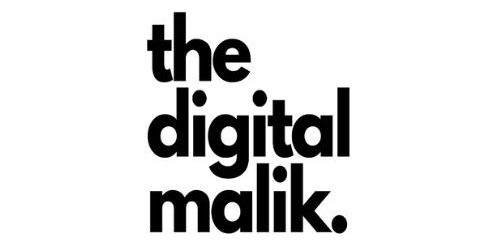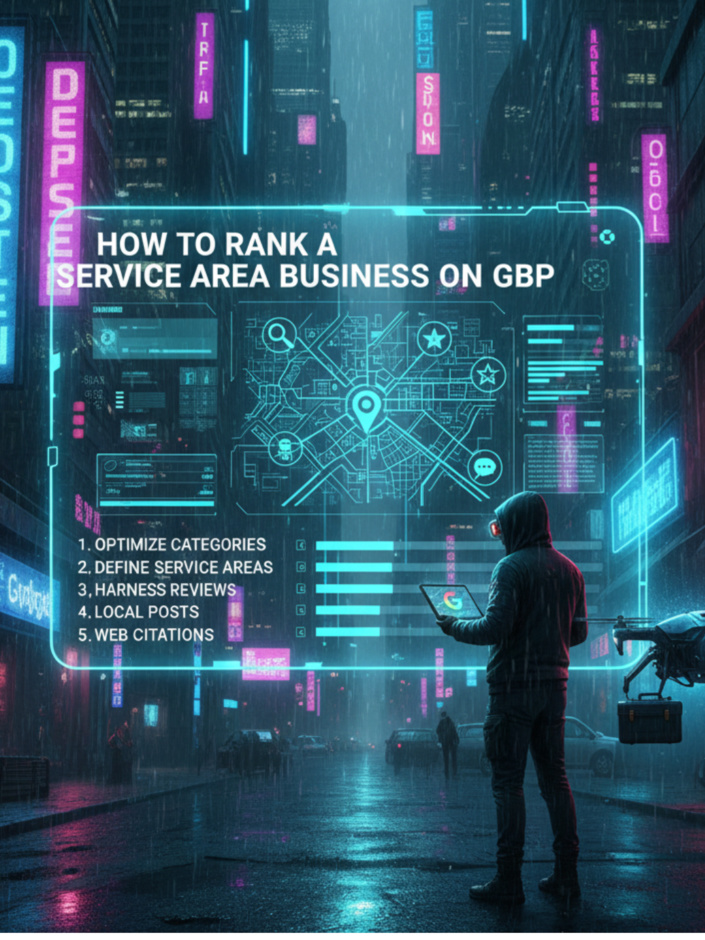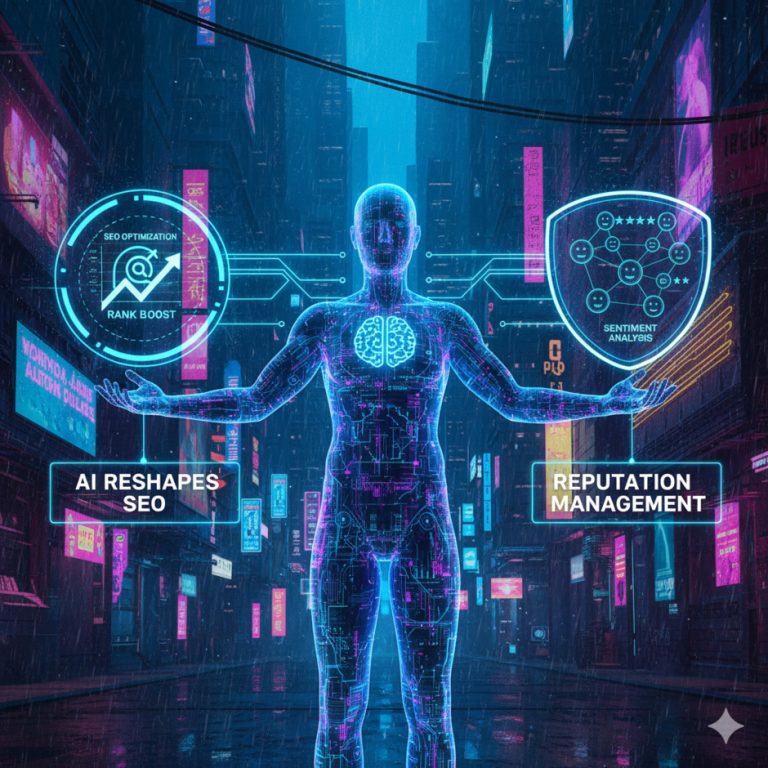How To Boost Your Search Engine Positioning In 2025

In 2025, mastering the art of how to Boost Your Search Engine Positioning is vital for anyone wanting to enhance their online presence.
This guide will explain what search engine placement is, why it is important, and how you can enhance your rankings.
Whether you’re a novice or have some knowledge, you’ll discover useful tips and tools to assist you in succeeding in the digital world.
Key Takeaways
- Search engine positioning is crucial to raise your site’s visibility and attract targeted visitors to your site.
- Focus on long-tail keyword optimization to attract targeted audiences and enhance your chances of ranking higher.
- Its Important to use tools like Google Search Console and Ahrefs, will help you audit and enhance your search engine ranking.
- Monitor your keyword rankings frequently and adjust strategies based on performance metrics to stay competitive.
- Dont forget to strategize in acquiring high-quality backlink building for topical authority.
- Optimizing user experience is essential in sustaining good search engine rankings for your site.
- Staying informed about algorithm changes and adjust your strategies according to them for success over the long run in search engine ranking.
Understanding Search Engine Positioning in 2025
What is Search Engine Positioning?
Search engine positioning aka ranking is the method of improving a site to appear higher in search results (SERPs) for chosen words.
Unlike normal SEO, which works on total site quality, ranking is about keeping and getting top places for certain searches.
The aim is to boost visibility, bring in visitors, and raise click-through rates (CTR).
To make this happen, tools such as Google Search Console assist in tracking keyword positions, while sites like Ahrefs & SEMrush offer details on rival placement.
Why Search Engine Positioning Matters for SEO
Ranking well on Google ain’t just about grabbing clicks—it’s about grabbing the best clicks.
Research shows the first three search results take most of the traffic, making placement a big deal in online success.
Why it matters and 3 points to keep in mind?
- Increased CTR – The higher your position, the greater the chances users will click on your link.
- More Authority – The higher the site’s ranking, the more authoritative it is perceived to be.
- Better Conversion Rates – Targeted traffic means more active users and better conversions.
Using tools GSC, Ahrefs, Keysearch.co can help analyze and improve your positioning strategy.
Key Differences Between SEO and Search Engine Positioning
While SEO and search engine positioning are closely related, they serve different purposes and employed for different reasons:
| Feature | SEO | Search Engine Positioning |
|---|---|---|
| Focus | Overall website optimization | Ranking for specific keywords |
| Goal | Improve site health & traffic | Secure top SERP positions |
| Strategy | Content, backlinks, technical SEO | Keyword targeting, CTR optimization |
For a balanced method, mixing both plans is important. Sites like Rank Math SEO & Yoast SEO provide resources to improve both SEO and ranking work.
Key Factors That Influence Search Engine Positioning
Google’s Ranking Algorithm Updates in 2025
Google always changes its ranking system, continuously refining it to make search results better.
In 2025, the main focus is on how users feel, content importance, & AI-powered search.
Sites that offer quick-loading pages, phone-friendly layouts, and top-notch content will be ranked better.
So, how do we remain competitive?
To keep up, try tools like Google Search Console to monitor website performance & Pagespeed Insights to improve load time.
SEO Toolkit also gives live tracking of algorithm updates, helping companies tweak their plans fast.
The Role of Click-Through Rate (CTR) in SERP Rankings
CTR plays an important factor in search engine ranking aka (Search Engine Results Page) SERP. When people click on your link in search the results page, this validates that your info is useful.
Here’s how to improve CTR:
- Write compelling meta titles and descriptions: Use tools like Rank Math SEO and Yoast SEO to optimize them.
- Use structured data – Applying schema markup with Google’s Structured Data Testing Tool can make your results stand out.
- Optimize for featured snippets – This is related to your FAQs, by providing concise answers to frequently asked questions to receive visibility.
Balancing Your Organic and Paid Search Strategies
Because pour goal and aim is for lasting success, organic SEO is important and Py-Per-Click Search (PPC) is equally important, which gives quick visibility.
A well-rounded method guarantees steady visitors & brand recognition.
- Natural SEO – Concentrate on article marketing, inbound links, and website optimization, checkout this post on How to Write a Blog Post: SEO Optimized in 2025.
- Paid Search – Use Google Ads to target high-intent keywords and drive quick results.
By mixing both methods, companies are able to boost their search engine rank & remain in front of rivals.
Effective Strategies for Search Engine Positioning Improvement

How to Optimize for Long-Tail Keywords?
Long-tail keywords are better to use than the normal keyword terms because they are data-driven, less competitive search phrases that attract highly targeted traffic.
For example, instead of ‘top shoes,’ focus on ‘top running shoes for flat feet 2025.”
Here’s how to find and use them:
- Try Keyword Research Tools – Websites such as Keysearch.co, Ahrefs and Ubersuggest assist in finding long-tail keywords.
- Consciously Avoid “Keyword Stuffing” – You can do so naturally if you include these keywords in the titles, headings, and content.
- Strategize your Content Creation- By focusing on creating content around them – Write blog posts, FAQs, and guides that directly answer user queries.
Improve On-Page SEO for Better Rankings
On-page SEO optimizes your content is optimized for search engines and users.
Its important to get these right:
- Title Tags & Meta Descriptions – Use Rank Math SEO or Yoast SEO to craft compelling, keyword-based titles.
- Header Tags (H1, H2, H3) – It is the norm for all your blog posts, by carefully structuring the structure content in such a way that it improves readability.
- Internal Linking – Internal linking of your relevant pages to the article which you are looking to publish on your website for maximum interaction and SEO.
- Image Optimization – Compress images using TinyPNG or Shorpixels and make sure to add alt text for accessibility.
Don’t forget to sign-up and receive – The Digital Malik’s SEO Toolkit on-page SEO checklist to ensure every page is fully optimized.
Why is It Important to Use High-Quality Backlinks?
High-quality backlinks will boost your website’s credibility and search engine rankings. These are basically endorsements from reputable sources.
Here’s how to build them:
- Guest Posting – Write for reputable or high authority blogs in your niche.
- Broken Link Building – Use Ahrefs Broken Links Checker to find and replace dead or broken (404) links with your content.
- Qwoted (is like HARO aka Connectively – Help a Reporter Out) – Respond to journalist queries – Check out my article on 17 Alternatives to HARO.
By putting together long-tail keyword optimization, on-page SEO, & link-building techniques, you may improve your search rankings and get more visitors.
Essential Tools to Boost Search Engine Positioning
SEO Audit Tools for Performance Analysis
Regular SEO checks help find problems that could be lowering your rank. These tools check page speed, dead links, mobile usability & more.
- Google Search Console – Tracks indexing issues, keyword performance along with insights, and website health.
- Screaming Frog – Scans websites for broken links, duplicate content, and technical errors.
I highly recommend blocking time on your calendar for a monthly audit at minimum to keeps your site search engine-optimized.
Content Optimization Tools for Increased Visibility
You need to take a strategic approach in creating and writing search-engine-optimized content, achieve ranking higher these essentail tools assist in keyword use, readability, and organization.
These resources assist with keyword use, readability, and organization.
- Surfer SEO – Provides real-time content suggestions based on top-ranking pages.
- Grammarly – assists with ensuring content is clear, error-free, and engaging.
Your key focus is to ranks well and keeps readers engaged, to achieve this you need the help of these type of tools.
SERP Tracking Tools to Monitor Rankings
Tracking your search engine ranking enables you to know what is working and where you need to improve.
These tools give real-time ranking status & competitor analysis. Tracking your search engine rank lets you see what’s effective and where to get better.
- Ahrefs Rank Tracker – Tracks keyword positions and competitor rankings.
- SEMrush Position Tracking – Provides daily ranking updates and visibility trends.
By consistently monitoring rankings, you can adjust your SEO strategy and stay ahead of competitors.
Advanced Techniques for Dominating SERPs

AI and Machine Learning in SEO
Search engines are getting intelligent, and algorithms based on AI are getting the top-ranking position.
Google’s RankBrain & BERT research search intent, so keyword overloading will no longer be a strategy.
Instead, focus on original and high-quality content.
Here’s how to use AI for SEO:
- Clearscope – Helps optimize content based on top-ranking pages.
- Frase – Uses AI to generate SEO-friendly content briefs.
The more comfortable you become in using AI, you’ll naturally create content that aligns with search intent and ranks higher.
With AI, you can create search intent-matched as well as improved-ranked content.
The Digital Malik's AI SEO Checker – Uses artificial intelligence to recommend article upgrades & keyword chances.
Voice Search Optimization Strategies
As more and more individuals use Siri, Alexa & Google Assistant, voice search optimization is essential. Voice searches are longer & more conversational, so your content needs to be of the same sort.
Steps on how to optimize for voice search:
- Use natural language – Write content in a way that answers spoken queries.
- Focus on question-related keywords – Try tools such as AnswerThePublic to locate popular questions.
- Optimize for featured snippets – Voice assistants often pull answers from position zero in search results.
Structured Data and Schema Markup for Better Visibility
Adding structured information (schema markup) helps search engines better comprehend your content.
This will leads to rich snippets, star reviews & FAQs in search results, like using Ranks Math SEO’s FAQs Schema is plus and its free.
How to use schema markup?
- Google’s Structured Data Markup Helper – Helps in generating and testing schema code.
- Schema.org – Provides a comprehensive list of structured data types.
By using AI, voice search tuning & structured info, its becomes easier to keep up with SEO changes and rule search results.
Measuring and Maintaining Search Engine Positioning
Key Metrics to Track Search Engine Positioning
To keep your position strong, you gotta keep an eye on your stats, they guide you. These figures reveal what’s effective and what could be better.
Here are the key metrics to monitor:
- Keyword Rankings – Using Ahrefs Rank Tracker to see where your pages rank.
- Click-Through Rate (CTR) – Check your linked Google Search Console to see how often people click your links.
- Bounce Rate & Dwell Time – Use Google Analytics to measure how long visitors stay, page views and a number of other data points for on your site.
Tracking these regularly helps you spot trends and adjust your strategy.
How to Adapt to Algorithm Changes
Google updates its algorithm frequently, which can impact rankings. Instead of panicking, follow these steps:
- Stay informed – Follow The Digital Malik’s SEO Blog and Google Search Central for updates.
- Analyze ranking drops – Use Google Search Console to check for penalties or indexing issues.
- Modify content plan – If positions fall, refresh past content, boost site speed, & tweak for what users want.
By staying flexible, you can recover from ranking drops and maintain visibility.
Continuous Optimization: Tweak, Adjust and Test for Long-Term Success
SEO isn’t a set it and forget it model —it’s an ongoing process.
To keep your site ranking well:
- Update content regularly – Revive stale and old blogs with new facts and keywords.
- Build new backlinks – Stay on top of making new high-quality back links.
- Improve user experience – Optimize for mobile aka UX, speed, and accessibility.
By constantly refining your plan, you can ensure strong search engine positioning and beat the competition.
Final Thoughts
Mastering the art of search engine ranking in 2025 is crucial for anyone wanting to boost their online presence to increase visitors and readership.
In this guide, we’ve looked at the main things that affect rankings, from focusing on long-tail keywords to using top-notch backlinks and structured info.
Its absolutely important in building a strong position within search results is an effort requiring strategy.
That involves a balance of technical SEO, content refinement, and staying on top of algorithm changes.
One of the biggest lessons is that search engine postioning isn’t a single effort—it’s a continuous task.
You can apply good habits by checking your ranking, adjusting to search engine updates, and improving your posting plans will set you apart and help you gain a solid spot in search results.
Remember the benefits of tools such as SEO analysis platforms, content improvement software, and SERP monitoring tools can make this task easier.
No matter if you’re a new or seasoned Blogger or a Digital Entrepreneur, The Digital Malik gives you key tools, ideas, and plans to assist you in expanding your web brand and keeping up in the tough digital world.
Search engines will continue to evlove and change the digital landscape, by being aware and proactive is essential.
Keep on testing, tweak your strategy, and utilize the best tools to boost your search engine ranking.
With dedication and a good strategy, you will attain long-lasting success in search rankings.
Now, lets get RANKING! 🚀
Frequently Asked Questions (FAQs)
What is search engine positioning aka ranking?
Search engine positioning is the art of optimizing your site to gain a better spot in search engine results pages (SERPs). It involves multiple strategies and tactics that are targeted at enhancing visibility and driving organic traffic.
Why is search engine positioning important for my website?
Effective search engine placement is vital because it directly affects your website’s visibility. Higher rankings in SERPs lead to more traffic, which can cause more conversions and sales. In today’s tough online environment, strong placement can distinguish you from rivals.
How can I improve my search engine positioning?
To enhance your search engine ranking, concentrate on optimizing your website’s material for relevant keywords, improving on-page SEO features like meta tags and headings, and creating high-quality backlinks. Frequently updating your content and guaranteeing a good user experience also have important roles.
What tools can help with search engine positioning?
How often should I monitor my search engine positioning?
It’s smart to check your search engine ranking often, preferably every month. This helps you to notice shifts in rankings, evaluate the success of your SEO plans, and make needed changes to keep or boost your spot in SERPs.






